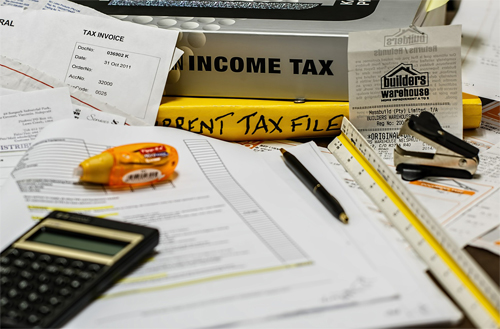VAT arrears and late payments of VAT are a serious business. The most recent research indicates that British businesses owe a staggering £2.6 billion to HMRC in overdue VAT, slightly up from £2.55 million in 2014. But why is this figure so high?
 An obvious answer is increasingly late payments from customers. In fact, research suggests that businesses are typically waiting 72 days for their invoices to be paid – a far cry from the 30 days most companies give as their nominal payment deadline.
An obvious answer is increasingly late payments from customers. In fact, research suggests that businesses are typically waiting 72 days for their invoices to be paid – a far cry from the 30 days most companies give as their nominal payment deadline.
However, whilst many businesses are suffering from late payments, HMRC is not in the same position. Irrespective of whether they have been paid or not, companies are expected to make their VAT payments on time and in full – or face some serious penalties.
So, what happens when you pay VAT late?
Occasional late payments merely result in a warning, but woe betide a business that misses two deadlines in a 12-month period. This will bring them firmly within HMRC’s penalty regime, which can result in a surcharge of anything from 2% to 15% of the VAT due.
Avoiding these penalties isn’t easy, and can ironically become more difficult during a period of growth. It’s precisely when you’re acquiring new staff, new plant or new premises to serve new customers – who will of course pay in arrears – that your cash flow becomes most constrained. So how can you juggle these priorities and increasingly late payments without falling foul of HMRC?
When countering late payments an overdraft isn’t always the answer
When facing a cash flow crisis, many business owners’ thoughts immediately turn to their overdraft. However, for all too many SMEs a generous overdraft is a thing of the past: banks are removing overdrafts at the rate of £5.7 million a day. In a recent survey, 17% of SMEs stated that their overdrafts had been eliminated completely, whilst a total of 30% had seen reductions over the last two years.
Even if you are in the fortunate position of still having a substantial overdraft, chances are that it’s comparatively expensive – even though base rate remains at a record low of 0.5%. Besides, it frequently makes sense to keep an overdraft as the borrowing option of last resort, particularly as banks are legally entitled to demand immediate repayment of any outstanding balance.
A short-term vat loan can protect you from a late payments penalty
With an emergency business loan from Cashsolv, the funds can be inside your account in under 24 hours to avoid the possibility of late payments. Unlike a bank, we don’t have a convoluted application procedure and won’t expect to see comprehensive details of your credit history, business plan and profit and loss forecast. We simply need to know that you have the funds on the way to pay us back when your customers pay you.
A VAT penalty of 15% for late payments could mean the difference between viability and liquidation for your business in 2016. A short-term loan from Cashsolv will enable you to dodge that bullet.

